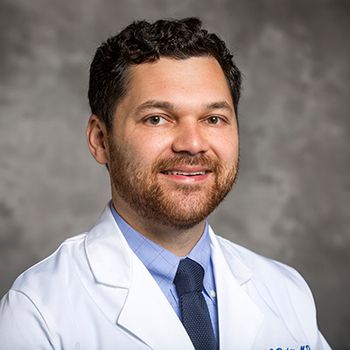
Breast Cancer Survivors at Increased Risk for Thyroid Cancer
A recent study found that women diagnosed with breast cancer are at increased risk for developing thyroid cancer, prompting the authors to encourage regular screening for the disease in breast cancer survivors.
A large, retrospective cohort analysis found that breast cancer survivors have an increased risk for development of thyroid cancer compared with the general population, a finding that researchers said should prompt greater awareness of the risk among this growing population.
“With advances in treatment, survival after primary breast cancer is improving, with survival rates reaching 89.2% at 5 years, increasing the prevalence of breast cancer survivors,” wrote a research team led by Jennifer H. Kuo, MD, of Columbia University Medical Center in New York. Their poster was
The study used data from the SEER-9 database, and included 704,402 women with breast cancer only, 49,663 women with thyroid cancer only, and 1,526 who had breast cancer prior to developing thyroid cancer.
The study stratified women by age, and found significantly increased risks for thyroid cancer after breast cancer in certain age groups. The highest risk was seen in those younger than 50: in that group, the general population risk was 0.33% for thyroid cancer, compared with 16.0% for thyroid cancer following breast cancer. In those women 50 to 60 years of age, there was still an increased risk: 12.0% for thyroid after breast cancer compared with 0.35% for thyroid cancer alone.
Breast cancer survivors who developed thyroid cancer were diagnosed with the first of those malignancies at a younger age (54.0 years vs 61.0 years; P < .001), were more likely to be Asian (P < .001) or Hispanic (P = .006), and had smaller tumor size (P = .001). They also were more likely to have undergone radiation therapy (P = .021) and to have had invasive ductal carcinoma compared with other histologies (P = .002).
The patients who developed thyroid cancer after breast cancer were significantly older than those who only developed thyroid cancer (62.0 years vs 45.0 years; P < .001). They were also less likely to be Hispanic, had smaller thyroid tumors, and were less likely to be treated with radioactive iodine.
The median time from breast cancer diagnosis to development of a thyroid second primary cancer was 5.0 years; according to a
“Recognition of this association between breast and thyroid cancer should prompt vigilant screening for thyroid cancer among breast cancer survivors,” she said.
Newsletter
Stay up to date on recent advances in the multidisciplinary approach to cancer.
Related Content












































